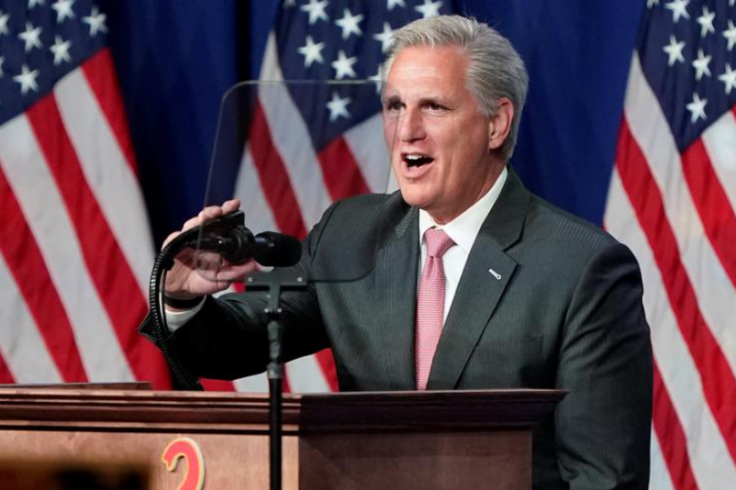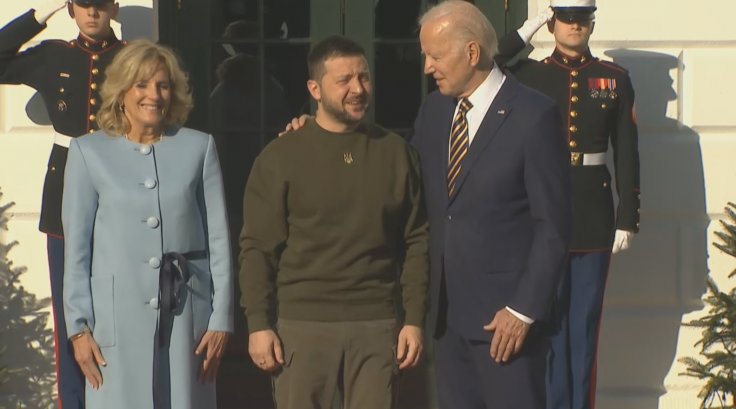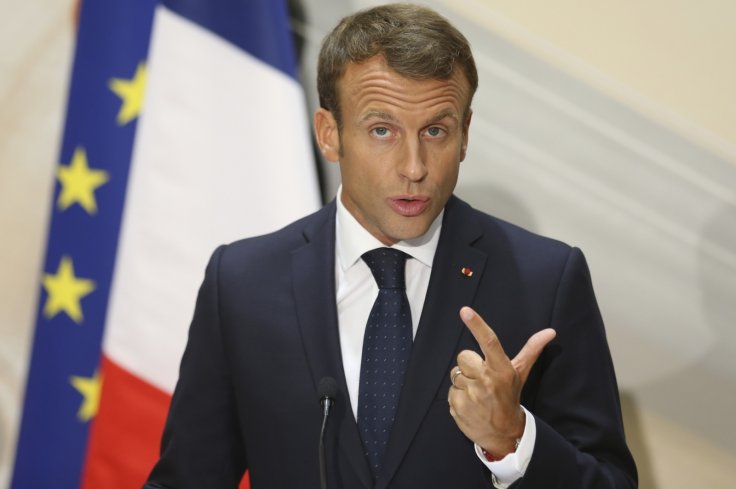War-weary Americans are slowly gravitating towards forcing a rethink on the Biden administration’s unlimited and indefinite military and financial support to Ukraine, according to some reports.
A new Reuters/Ipsos survey showed that support among Americans for providing military aid to Ukraine has fallen to 58 percent. This is in sharp contrast to a survey in April 2022 that showed an overwhelming 73 percent of Americans supported total assistance to Ukraine.
Why is the Shift Happening?
The latest shift in the thinking of the Americans comes close on the heels of President Joe Biden’s high-profile visit to Ukraine last week, where he promised President Volodymyr Zelensky more military and financial assistance in Ukraine’s bid to beat back the Russians.
1. Power Balance in Congress has Changed
Though both the Democrats and the Republicans support the military and financial aid to Ukraine, cracks are appearing within both the parties. Last week, some right-wing Republicans in Congress proposed a ‘Ukraine Fatigue’ resolution that sought to limit aid to Kyiv. The GoP leadership right now affirms an unlimited support to Ukraine but they are at loggerheads with President Biden on most of the policy matters. Even as a stalemate between the government and the GoP is expected to ensue over the extension of the borrowing of spending limits, the Ukraine largess by Biden will come into focus. This will invariably limit the president’s powers to keep offering budget and weapons to Ukraine.

Reuters
2. Even Democrats Doubt if Unlimited Funding Would Get Voters’ Approval
Meanwhile, the Democrats are also wary of the popular perception about the nature and outlook of the war as well as the US role in it. The Biden administration will find it difficult to convince the voters on the need to keep funding the war going forward, according to some Democrat leaders. “I’ve been around long enough to see that engagements, especially costly engagement, don’t have an eternal lifespan, especially if you’re not making a case,” said Democrat Bob Menendez, who chairs the powerful Senate Committee on Foreign Relations, according to Reuters.

3. Zelensky’s Bid to Widen Scope of War
Though initially Zelensky pitched the conflict as Kyiv’s bid to resist the aggressor, he has now expanded the goals of the war. Ukraine has of late displayed intransigence over a possible peace dialogue, saying that its goal now is to liberate Crimea as well, which Russia had annexed in 2014. This invariably means a total defeat of Russia, a scenario unlikely to happen. It is also too dangerous to hope to have Russia on the mat. Russian President Vladimir Putin last week said he was suspending the nuclear weapons reduction treaty with the US and that he was prepared to increase his nuclear fire power.
4. Increasing Concerns Over China Playing a Role
The speculation about China’s increasing support and assistance to Russia is adding another dangerous dimension to the war. Though China has ruled out offering major military equipment to Russia, the two superpowers are closer now than ever before. The potential of a broader conflict involving China is something that right-thinking people anywhere in the world would not want to have. This is one factor that has influenced the Americans’ thinking on the war funding by the Biden administration.
5. Fissures in NATO and EU

IANS
Zelensky is totally dependent on financial aid from America and the NATO allies and he knows full well that his chances against Russia depend solely on trapping the US in a never ending war of attrition with Russia. With more and more Americans becoming aware of the rising cost of war both in terms of human life and finances, there will be increasing demands to find compromises and end the war. In Europe, powerful NATO allies like France and Germany, much as they don’t want a Putin victory, are of the view that the war must end. It’s only the US and UK who are on board the plan to go to any extent in seeing Russia’s destruction. Within the European Union, popular support for war funding is dwindling in countries like Italy and Russia.






